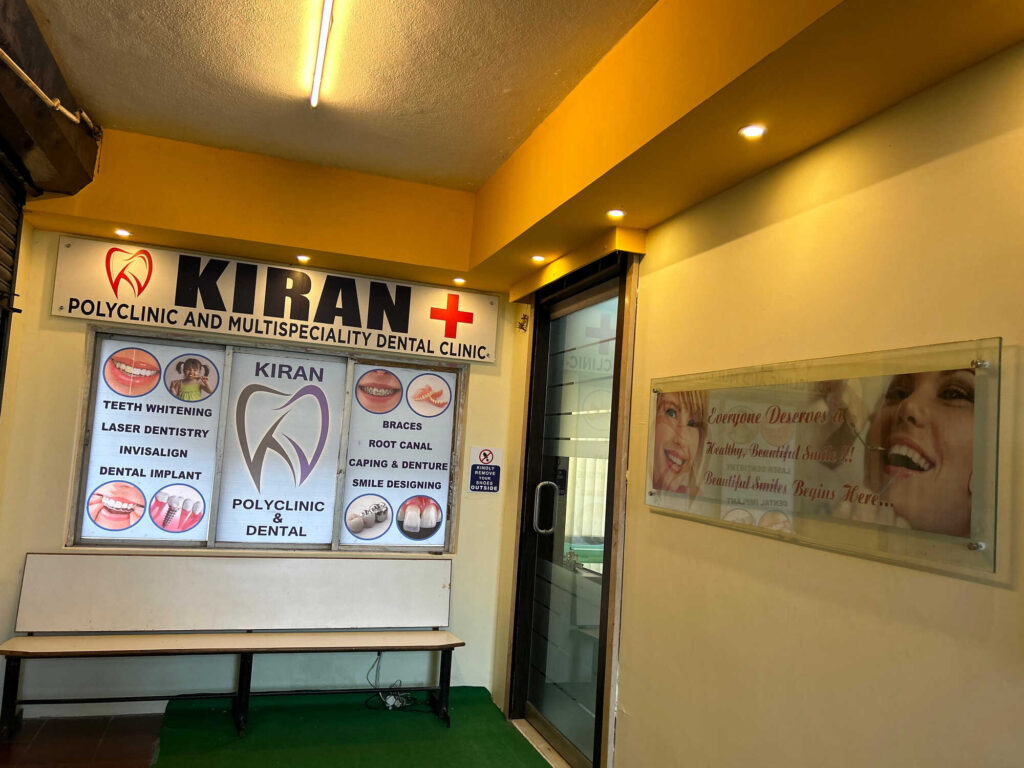
Understanding the Two-Way Street Between Oral and Overall Health
Presented by Kiran Polyclinic and Dental Clinic, Udupi
When we think of diabetes, our minds often focus on blood sugar levels, insulin, and diet. However, did you know that your oral health—specifically your gums—can be deeply affected by diabetes? At Kiran Polyclinic and Dental Clinic, Udupi, we believe in educating our patients about the powerful link between diabetes and gum disease, and how managing both together can lead to better overall health outcomes.
What is Gum Disease?
Gum disease, also known as periodontal disease, is an infection of the tissues that surround and support your teeth. It starts as gingivitis (inflammation of the gums), which, if left untreated, can progress into periodontitis, a more severe form that can result in tooth loss.
Symptoms of gum disease include:
Red, swollen, or bleeding gums
Bad breath
Receding gums
Loose or sensitive teeth
How Diabetes Affects Gum Health
Diabetes lowers the body’s resistance to infection and slows down healing. This makes it easier for gum infections to take hold and harder to get rid of them. The high blood sugar levels found in people with diabetes also help harmful bacteria to thrive in the mouth, increasing the risk of gum inflammation and disease.
Key Effects of Diabetes on Oral Health:
Poor Circulation: Slows down healing in the gums
Dry Mouth: Reduced saliva flow leads to increased bacterial growth
Weakened Immune Response: Makes it harder to fight off infections
Higher Risk of Infections: Increases chances of chronic gum issues
How Gum Disease Can Affect Diabetes
The relationship between diabetes and gum disease goes both ways. Just as diabetes can worsen gum disease, gum disease can make it harder for diabetic patients to control their blood sugar levels.
Inflammation caused by gum disease can affect the body’s ability to regulate blood sugar, leading to:
Increased insulin resistance
Difficulty in maintaining healthy glucose levels
Greater risk of diabetic complications
Warning Signs to Watch For
If you are diabetic, be extra cautious of these signs:
Bleeding when brushing or flossing
Persistent bad breath
Swelling in the gums or jaw
Pus between the teeth and gums
Teeth feeling loose or moving apart
At Kiran Polyclinic and Dental Clinic, we advise diabetic patients to schedule regular dental checkups to monitor and manage any signs of gum disease early.
How We Can Help at Kiran Polyclinic and Dental Clinic
At Kiran Polyclinic and Dental Clinic in Udupi, we offer personalized care for patients with diabetes and gum disease. Our experienced dentists are trained to recognize early signs of periodontal problems and offer preventive and therapeutic solutions tailored for diabetic individuals.
Our Services Include:
Comprehensive dental check-ups and cleanings
Non-surgical and surgical periodontal treatments
Patient education and guidance on oral hygiene practices
Close coordination with your physician or diabetologist if needed
Customized treatment plans to maintain oral and systemic health
Tips for Diabetics to Maintain Healthy Gums
Control Your Blood Sugar: Keep your diabetes under control through medication, diet, and exercise.
Brush and Floss Daily: Use a soft-bristled toothbrush and floss gently.
Avoid Tobacco: Smoking aggravates gum disease and interferes with healing.
Regular Dental Visits: Visit Kiran Polyclinic and Dental Clinic every 6 months or as advised.
Watch for Symptoms: Don’t ignore even mild symptoms—early intervention is key.
Why Choose Kiran Polyclinic and Dental Clinic, Udupi?
We are committed to holistic dental care that understands the interplay between oral health and overall well-being. Our team takes the time to understand your medical history and customize treatments accordingly.
Whether you’re newly diagnosed with diabetes or have been managing it for years, we’re here to help you protect your smile and your health. At Kiran Polyclinic and Dental Clinic, your wellness is our priority.
Book Your Appointment Today
Don’t wait for symptoms to get worse. If you have diabetes, make your gum health a part of your routine care.


